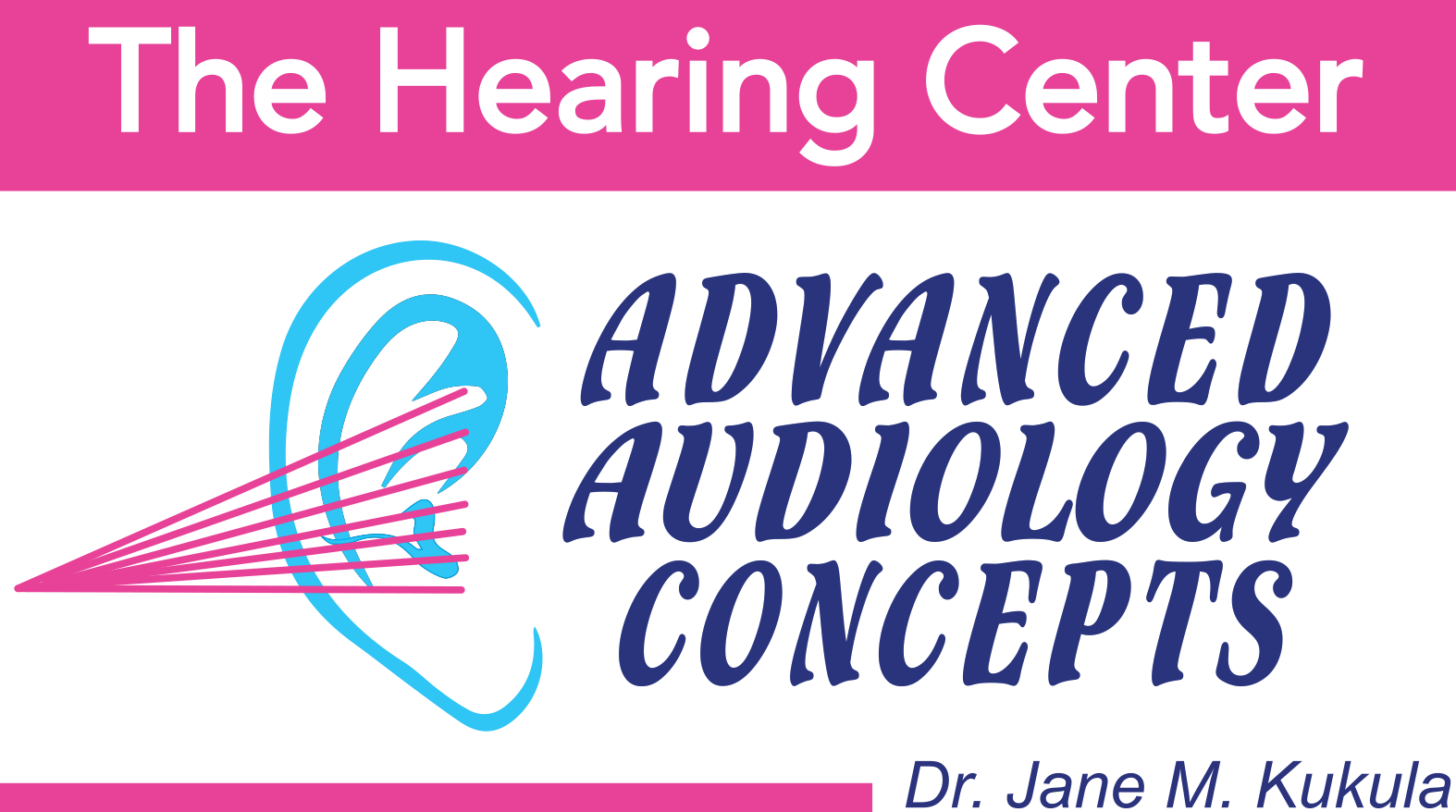8897 Mentor Ave Mentor, OH 44060
8897 Mentor Ave Mentor, OH 44060
Helpful Articles

By Advanced Audiology Concepts
•
02 Jan, 2024
A recent breakthrough study sheds light on the link between hearing loss and cognitive decline. Published in The Lancet in July, 2023, the ACHIEVE study provides evidence that hearing intervention can be an effective way to slow cognitive decline in older adults at greater risk of dementia. The randomized controlled trial investigated the effects of hearing intervention on cognitive decline in older adults with hearing loss. It included 977 adults ages 70-84 with untreated hearing loss free from substantial cognitive impairment. Participants were randomly assigned to receive hearing aids and audiological support services (intervention group) or health education (control group). The study found that, over three years, hearing intervention did not significantly affect cognitive decline in the general population of older adults with hearing loss. However, in older adults at greater risk of dementia, hearing intervention was associated with a slower rate of cognitive decline. Specifically, participants in the intervention group were 25% less likely to show significant cognitive decline over three years than participants in the control group. The findings of the ACHIEVE study suggest that hearing intervention may effectively slow cognitive decline in older adults at greater risk of dementia. More research is needed to confirm these findings and determine the optimal timing and duration of hearing intervention to prevent cognitive decline. Here are some additional details about the study: The study was conducted at four sites in the United States: the University of North Carolina at Chapel Hill, Wake Forest University, the University of Pittsburgh, and the University of California, San Francisco. The intervention group received hearing aids and audiological support services, which included hearing aid fittings, counseling and follow-up appointments. The control group received health education, which included information about hearing loss and dementia. The study’s primary outcome was the rate of cognitive decline, as measured by a standardized cognitive function test. The study was funded by the National Institute on Aging, the National Institute on Deafness and Other Communication Disorders, and the Hearing Loss Association of America. As the study points out, the longer you wait to do something about your hearing loss, the greater the risk for cognitive decline. Call us today, we can help.

By Advanced Audiology Concepts
•
17 Dec, 2023
The holiday season is in full swing, gatherings small and large at a variety of venues. Unfortunately, for individuals with hearing loss their struggle to clearly understand what’s being said is more apparent that ever before. The human ear, a marvel of engineering, allows us to navigate the world’s symphony of sound. But when this intricate system falters, even slightly, the consequences can be surprising. Mild hearing loss, often dismissed as a minor inconvenience, can have a significant impact on our lives, working its way into our relationships, work, and even our health. While you might still catch most conversations, the subtle nuances of speech – the inflection, the soft consonants – become blurred. Imagine trying to decipher a whispered secret in a crowded room, or struggling to follow the plot of a movie with muffled dialogue. These everyday situations become frustrating exercises in concentration, leaving you feeling isolated and out of the loop. The social impact of mild hearing loss is often the most noticeable. Misunderstandings bloom, leading to awkward silences and strained conversations. Jokes fall flat, and the joy of shared laughter dims. Social gatherings, once a source of connection, become an exhausting effort to keep up, leading to withdrawal and loneliness. The workplace can also be a minefield. Important instructions get missed, deadlines slip, and valuable contributions go unheard. Career advancement becomes a steeper climb, and the constant strain of deciphering muffled communication can lead to fatigue and decreased productivity. But the effects of mild hearing loss extend beyond the immediate. Studies have shown a link between unaddressed hearing loss and cognitive decline, including an increased risk of dementia. The brain, deprived of its full auditory input, struggles to compensate, leading to a domino effect on cognitive function. The good news? Ignoring hearing loss isn’t the answer. Addressing mild hearing loss early can make a world of difference. Hearing aids can amplify the sounds you’ve been missing, restoring clarity to communication and reconnecting you with the world around you. Here’s what to do: Get your hearing tested: A hearing test can provide valuable insight into your auditory health. Talk to your hearing healthcare professional: Early intervention is key. Discuss your concerns and treatment options with your hearing healthcare provider. Embrace technology: Today’s hearing aids are discreet, sophisticated, and can be customized to your needs. Don’t be shy: Hearing loss is common, and seeking help is smart. Talk to your loved ones and colleagues, and break the stigma surrounding hearing health. Remember, even a mild hearing loss can have a big impact. By taking action, you can turn up the volume on your life and reconnect with the world you deserve to hear.

By Advance Audiology Concepts
•
17 Nov, 2023
Falls are a major concern for older adults, as they can lead to serious injuries, loss of independence, and even death. One factor that may increase the risk of falling is hearing loss. Studies have shown that people with hearing loss are more likely to fall than those with normal hearing. Below are a number of reasons why hearing loss can increase the risk of falling. Spatial Awareness: Hearing is an important component of spatial awareness. It helps individuals detect and locate sounds in their environment. When hearing is impaired, it becomes challenging to be fully aware of the surroundings, making it easier to trip over obstacles or collide with objects. Auditory Cues for Balance: Auditory information contributes to the brain’s understanding of the body’s position in space. Hearing loss can affect the brain’s ability to interpret these cues, potentially leading to balance issues and an increased risk of falls. Difficulty in Detecting Hazards: Sounds such as footsteps, approaching vehicles, or other environmental cues serve as warning signals for potential hazards. Individuals with hearing loss may have difficulty detecting these warning signs, putting them at a higher risk of accidents. Reduced Awareness of Surroundings: Hearing loss can contribute to a reduced awareness of the environment, making it more challenging to respond to unexpected situations. For example, someone with hearing loss might not hear someone approaching from behind, increasing the likelihood of collisions or falls. Communication Challenges: Effective communication is essential for safety. Hearing loss can lead to misunderstandings and misinterpretations, especially in situations where verbal communication is crucial for avoiding hazards. This breakdown in communication can contribute to accidents and falls. Social Isolation: Hearing loss can lead to social isolation, as individuals may avoid social activities due to difficulties in communication. Social isolation, in turn, is a risk factor for falls, as it may lead to a decrease in physical activity and an overall decline in health. Cognitive Load: Struggling to hear and understand conversations can place an additional cognitive load on individuals with hearing loss. This increased cognitive effort may divert attention from other tasks, reducing the ability to focus on the environment and increasing the risk of tripping or falling. How Hearing Aids May Help Hearing aids can significantly reduce the risk of falling by addressing the sensory deficits associated with hearing loss. They enhance an individual’s spatial awareness, allowing for better detection and localization of environmental sounds. This improvement in auditory perception enables timely recognition of potential hazards, such as footsteps or approaching vehicles, contributing to enhanced situational awareness. By facilitating effective communication, hearing aids help individuals receive verbal warnings and cues, reducing the likelihood of accidents. Moreover, hearing aids support balance and gait by providing the auditory information necessary for the brain to maintain equilibrium. Overall, the use of hearing aids not only mitigates the communication challenges linked to hearing loss but also plays a crucial role in promoting overall safety and preventing falls in various environments. What the Research Says A 2023 study published in the Journal of the American Geriatrics Society found that people who wore hearing aids had about a 50% reduced odds of experiencing a fall, compared to non-users. And, the reduction was even greater among those who wore hearing aids at least four hours per day. Conclusion Hearing loss is a serious condition that can increase the risk of falling. However, there is evidence to suggest that hearing aids may help to reduce this risk. In addition to the benefits listed above, hearing aids can also: Help you to hear softer sounds Improve your ability to understand speech in noisy environments Reduce feedback Make it easier to listen to music and other sounds Improve your overall quality of life If you are considering getting hearing aids, do your research and talk to your hearing healthcare professional. There are many different types of hearing aids available. It is important to find one that meets your individual needs. Please note that this blog post is for informational purposes only and should not be construed as medical advice. Always consult with your healthcare professional before making any decisions about your health.

By Advanced Audiology Concepts
•
24 Oct, 2023
In today’s digital age, reviews have become an integral part of our decision-making process, influencing everything from where we dine to what products we buy. Whether you’re considering a new restaurant, a book to read, a vacation destination, or even a service provider, online reviews can provide valuable insights into the experiences of others. Compelling Reasons to Value Reviews Trustworthy Feedback : Reviews offer genuine feedback from real people who have experienced a product or service firsthand. Knowing that these opinions are from individuals with no vested interest in promoting or demoting a product can provide you with a sense of trustworthiness that you might not get from promotional materials or advertisements. Quality Assurance : Reading reviews can help you assess the quality of a product or service. If a particular restaurant consistently receives glowing reviews for its food and service, it’s likely a safe bet for your next dinner outing. On the flip side, if a product has numerous negative reviews highlighting issues, you can avoid making a disappointing purchase. Real-Life Experiences : Reviews often contain detailed accounts of real-life experiences. These stories can help you during the decision-making process. For instance, reading about someone’s stay at a hotel can provide valuable information about the rooms, amenities, and overall ambiance that you won’t find on the hotel’s official website. Save Time and Money : By valuing reviews, you can save both time and money. Instead of trying out multiple options and risking disappointment, you can make informed choices based on the experiences of others. This can prevent unnecessary expenses and ensure your time is spent on activities or products that meet your needs. Improved Decision-Making : Reviews provide a wealth of information to aid your decision-making process. They can help you weigh the pros and cons of different options and prioritize what matters most to you. This, in turn, empowers you to make choices that align with your preferences and values. How to Weigh a Bad Review When evaluating a bad review as a consumer, it’s important to approach it thoughtfully. First, consider the reviewer’s credibility. Assess their history and whether their feedback seems balanced and fair. Examine the issues raised—is it a one-off incident or a recurring one? Assess the overall tone of the review; overly emotional or extreme negativity can be a red flag. Compare it to a broader range of reviews; if it’s an anomaly among numerous positive ones, it may not be representative. Finally, look for patterns or common themes in bad reviews to identify genuine concerns. Use bad reviews as a tool for informed decision-making rather than snap judgments. In conclusion, assessing a business by reading its reviews is not just a practical choice; it’s a smart one. Reviews provide valuable insights, build trust, save time and money, and foster a sense of community. In a world where choices abound, reviews serve as beacons of guidance, helping us navigate the vast sea of options. So, the next time you’re faced with a decision, take a moment to read and consider the reviews – they might just be the key to making the best choice for your needs. Read our Google Reviews here

By Advance Audiology Concepts
•
18 Sep, 2023
Hearing is one of our most precious senses, allowing us to connect with the world and the people around us. However, it’s a sense we often take for granted until something goes wrong. One such alarming condition is sudden hearing loss, a rare but potentially life-altering experience that can occur without warning. This blog will outline the causes, symptoms, and treatment options for sudden hearing loss. What is Sudden Hearing Loss? Sudden hearing loss, also known as sudden sensorineural hearing loss (SSHL), is a rapid decline in hearing ability that occurs over hours to a few days. SSHL typically affects only one ear, although it can sometimes impact both. It can manifest at any age, and its causes remain a subject of ongoing research. The Stealthy Onset The first sign of SSHL is often a feeling of fullness or pressure in the affected ear, accompanied by a sudden drop in hearing. People may also experience tinnitus (ringing in the ear) and dizziness or imbalance. The severity of hearing loss can vary, with some individuals experiencing a mild reduction in hearing while others face complete deafness in the affected ear. Possible Causes The exact cause of SSHL remains a mystery in many cases, but several potential factors have been identified. These include: Viral Infections Autoimmune Diseases Head Trauma Certain Medications Issues Related to Blood Circulation Prompt medical evaluation is essential to determine the underlying cause and guide appropriate treatment. Seeking Immediate Medical Attention If you or someone you know experiences sudden hearing loss, don’t delay seeking medical attention. Time is of the essence, as early intervention can significantly improve the chances of recovery. Treatment Options Treatment for SSHL depends on its cause and severity. In some cases, patients may spontaneously recover their hearing without any intervention. However, corticosteroids are often prescribed, either orally or through injections into the ear, to reduce inflammation and promote healing. Other treatments, such as antiviral medications or immune system modulators, may be recommended if an underlying cause is identified. Living with Sudden Hearing Loss For those whose hearing doesn’t fully return, adjusting to life with SSHL can be challenging. Hearing aids, cochlear implants, or assistive listening devices may be recommended to help manage the hearing loss. In Conclusion Sudden hearing loss is a rare but alarming condition that can disrupt lives and impact emotional well-being. While the causes and treatments vary, one thing remains constant: the importance of seeking immediate medical attention. If you or someone you know experiences sudden hearing loss, don’t hesitate; silence can be deafening, but knowledge and timely intervention can make all the difference.

By Advanced Audiology Concepts
•
17 Jul, 2023
Yes, noise pollution can indeed impact your health. We are surrounded by noise, from household appliances to tools to traffic to the din of TVs and music in every household, restaurant, and shop you enter. Some days it’s difficult to find anywhere in your environment that is quiet. Prolonged exposure to excessive noise levels can negatively affect both physical and mental well-being. Here are some ways in which noise pollution can affect your health: Hearing damage: Although this is obvious, it bears repeating. Exposure to loud noises, such as heavy machinery, concerts, or constant traffic, can lead to permanent hearing loss or impairment. Sleep disturbances: Noise can disrupt sleep patterns, leading to sleep deprivation and associated health issues like fatigue, impaired cognitive function, and decreased productivity. Stress and anxiety: Continuous exposure to noise can elevate stress levels, leading to increased cortisol production and potentially causing anxiety, irritability, and difficulty concentrating. Cardiovascular problems: Research suggests that chronic exposure to high noise levels can contribute to hypertension (high blood pressure), which in turn increases the risk of heart disease, stroke, and other cardiovascular conditions. Cognitive effects: Excessive noise can impair cognitive performance, including memory, attention, and problem-solving abilities. It can also affect children’s learning outcomes and development. Psychological impact: Prolonged exposure to noise pollution has been linked to psychological disorders such as depression, mood swings, and even an increased risk of psychiatric hospitalization. It’s important to note that the impact of noise pollution varies depending on the individual, the duration and intensity of exposure, and their susceptibility to noise. Reducing noise levels and protecting yourself from excessive noise can help to mitigate these health risks.

By Advanced Audioloy Concepts
•
17 Jun, 2023
Communication is an essential aspect of human interaction, allowing us to connect, share ideas, and build relationships. However, for individuals with hearing loss, effective communication can present challenges. As a considerate and inclusive individual, it’s important to understand and implement strategies that enable effective communication with people who have hearing loss. In this blog post, we will explore some valuable tips and techniques to help bridge the communication gap and foster better understanding. 1. Gain Attention When initiating a conversation with someone who has hearing loss, ensure that you have their attention before speaking. You can do this by making eye contact, waving your hand, or gently tapping their shoulder. This simple gesture allows the person to focus their attention on you and be prepared to receive the message. 2. Find the Optimal Environment Choose an environment that minimizes background noise and distractions. This can significantly improve communication for individuals with hearing loss. Find a quiet location, away from loud appliances or crowded areas, where both you and the person with hearing loss can converse comfortably. 3. Face the Person Directly Maintaining face-to-face contact while communicating is vital. Facing the person directly allows them to observe your facial expressions, gestures, and lip movements, which are essential cues for understanding the conversation. Avoid covering your mouth or speaking while turned away, as it makes lip-reading and visual cues difficult to interpret. 4. Speak Clearly and at a Moderate Pace When speaking, ensure that you articulate your words clearly and at a moderate pace. Avoid mumbling or rushing through sentences, as this can make it challenging for individuals with hearing loss to catch important details. Remember, it’s not necessary to shout; instead, speak naturally and emphasize keywords or phrases when appropriate. 5. Use Visual Cues and Gestures Visual cues and gestures can enhance communication and make it easier for individuals with hearing loss to follow along. Use simple hand gestures, facial expressions, and body language to convey meaning. However, avoid exaggerating your gestures, as it can appear unnatural or confusing. 6. Rephrase Instead of Repetition If the person with hearing loss doesn’t understand something you said, it’s better to rephrase your statement rather than repeat it verbatim. Try using different words or sentence structures to convey the same message. This approach increases the chances of understanding and prevents frustration from setting in. 7. Write or Type Important Information In situations where clarity is crucial, consider writing or typing important information. This can be done through a text message, email, or by using a notepad. Providing written information allows individuals with hearing loss to read and fully comprehend the message, ensuring effective communication. 8. Be Patient and Understanding Patience and understanding are key when communicating with someone who has hearing loss. Recognize that it may take them longer to process information and respond. Avoid interrupting or finishing their sentences, as it can be disempowering. Give them the time and space to contribute to the conversation at their own pace. 9. Use Assistive Listening Devices Assistive listening devices can significantly enhance communication for individuals with hearing loss. These devices include personal amplifiers, FM systems, or loop systems that help amplify sound and reduce background noise. Encourage the person to utilize these devices if available to ensure optimal communication. 10. Seek Feedback and Clarification Lastly, don’t hesitate to seek feedback and clarification during the conversation. Ask the person if they understood the message or if they require any additional information. This shows your willingness to accommodate their needs and promotes a collaborative approach to effective communication. In conclusion, effective communication with individuals who have hearing loss requires patience, understanding, and the implementation of specific strategies. By gaining attention, finding an optimal environment, facing the person directly, speaking clearly, using visual cues, and being patient, we can create an inclusive and supportive communication environment for all. Remember, every effort to improve communication helps to foster better connections and understanding.

By Advanced Audiology Concepts
•
18 Apr, 2023
Hearing loss is a common condition that can be caused by a variety of factors, including aging, exposure to loud noises, genetics, infections, and certain medications. While some causes of hearing loss cannot be prevented, there are steps that you can take to protect your hearing and minimize the risk of developing hearing loss. Here are some tips for preventing hearing loss: Protect your ears from loud noises: Exposure to loud noises is one of the most common causes of hearing loss. You can protect your ears by wearing earplugs or earmuffs when working in noisy environments, attending concerts or sporting events, or using power tools or other loud equipment. Turn down the volume: When listening to music, watching television, or using headphones, be sure to turn down the volume. Listening to music or other sounds at a high volume for long periods of time can damage your hearing. Take breaks from loud noises: If you are exposed to loud noises for an extended period, take regular breaks to give your ears a rest. This is especially important if you work in a noisy environment. Get regular hearing tests: Regular hearing tests can help detect hearing loss early and prevent it from getting worse. Avoid ear infections: Ear infections can damage the structures of the ear and lead to hearing loss. To prevent ear infections, keep your ears clean and dry and avoid putting objects in your ears. Be mindful of medication side effects: Some medications, including antibiotics, chemotherapy drugs, and some painkillers, can cause hearing loss as a side effect. Talk to your doctor about the potential side effects of any medications you are taking. Maintain a healthy lifestyle: A healthy lifestyle can help prevent hearing loss by reducing the risk of conditions that can contribute to hearing loss, such as high blood pressure, diabetes, and cardiovascular disease. Exercise regularly, eat a healthy diet, and avoid smoking and excessive alcohol consumption. By following these tips, you can help protect your hearing and minimize the risk of developing hearing loss. If you are concerned about your hearing, give us a call. We can help you determine the best ways to protect your hearing and preserve your ability to hear and enjoy the sounds of everyday life.

By Advanced Audiology Concepts
•
16 Mar, 2023
Hearing loss is the third most common chronic physical condition in the United States and is more prevalent than diabetes or cancer; as the Centers for Disease Control CDC noted . Hearing loss is an invisible disability but can affect individuals across all demographics. Below are a few quick statistics that provide insight into how many individuals are directly impacted by hearing loss. About 2 to 3 out of every 1,000 children in the United States are born with a detectable level of hearing loss in one or both ears. 1 More than 90 percent of deaf children are born to hearing parents. 2 Approximately 15% of American adults (37.5 million) aged 18 and over report some trouble hearing. 3 Among adults aged 20-69, the overall annual prevalence of hearing loss dropped slightly from 16 percent (28.0 million) in the 1999-2004 period to 14 percent (27.7 million) in the 2011–2012 period. 4 Age is the strongest predictor of hearing loss among adults aged 20-69, with the greatest amount of hearing loss in the 60 to 69 age group. 4 Men are almost twice as likely as women to have hearing loss among adults aged 20-69. 4 Non-Hispanic white adults are more likely than adults in other racial/ethnic groups to have hearing loss; non-Hispanic black adults have the lowest prevalence of hearing loss among adults aged 20-69. 4 About 18 percent of adults aged 20-69 have speech-frequency hearing loss in both ears from among those who report 5 or more years of exposure to very loud noise at work, as compared to 5.5 percent of adults with speech-frequency hearing loss in both ears who report no occupational noise exposure. 4 One in eight people in the United States (13 percent, or 30 million) aged 12 years or older has hearing loss in both ears, based on standard hearing examinations. 5 About 2 percent of adults aged 45 to 54 have disabling hearing loss. The rate increases to 8.5 percent for adults aged 55 to 64. Nearly 25 percent of those aged 65 to 74 and 50 percent of those who are 75 and older have disabling hearing loss. 6 Roughly 10 percent of the U.S. adult population, or about 25 million Americans, has experienced tinnitus lasting at least five minutes in the past year. 7 About 28.8 million U.S. adults could benefit from using hearing aids. 2 Among adults aged 70 and older with hearing loss who could benefit from hearing aids, fewer than one in three (30 percent) has ever used them. Even fewer adults aged 20 to 69 (approximately 16 percent) who could benefit from wearing hearing aids have ever used them. 9 As of December 2019, approximately 736,900 cochlear implants have been implanted worldwide. In the United States, roughly 118,100 devices have been implanted in adults and 65,000 in children. 10 Five out of 6 children experience ear infection (otitis media) by the time they are 3 years old. 11 These numbers do not include individuals indirectly impacted by the disability, friends, and family interacting daily with someone who has difficulty hearing. It also provides little insight into the impact hearing loss has on the emotional, social, and economic well-being of people with hearing loss. If you or someone you know is having trouble hearing, don’t wait; call us today.
Schedule a Consultation now
Contact Us
Thank you for contacting us.
We will get back to you as soon as possible.
We will get back to you as soon as possible.
Oops, there was an error sending your message.
Please try again later.
Please try again later.
Quick Links
© 2024
All Rights Reserved | © 2022 All Rights Reserved | Advance Audiology Concepts | This site is powered by Bluefoot.
